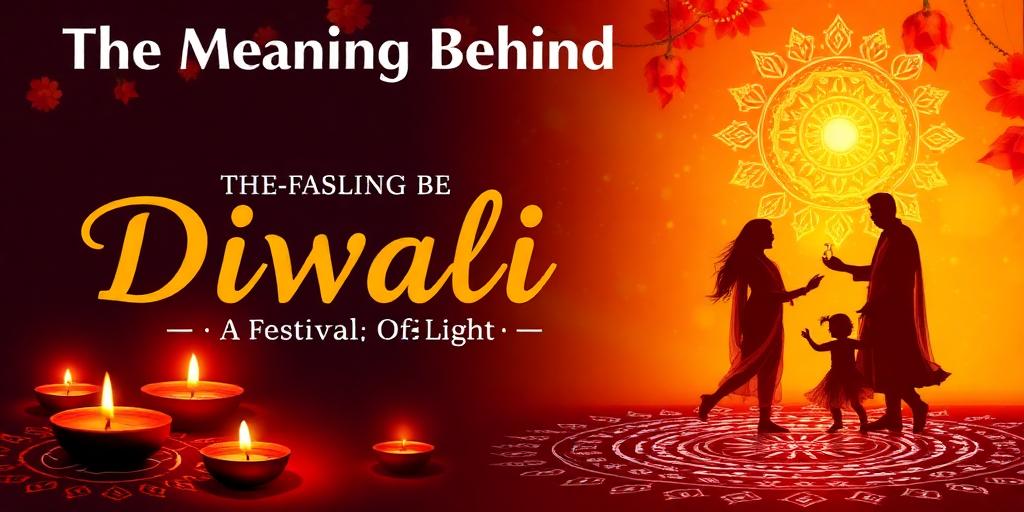Diwali, also known as the Festival of Lights, is one of the most significant and widely celebrated festivals in India and across the Indian diaspora. Spanning five days, this auspicious occasion is steeped in rich traditions, cultural significance, and profound spiritual meaning. This article delves into the multifaceted layers of Diwali, exploring its origins, rituals, and the deeper philosophical concepts it embodies.
Historical and Mythological Origins
The roots of Diwali are embedded in various historical and mythological narratives, each adding a unique dimension to the festival's significance:
The Return of Lord Rama: One of the most popular narratives celebrates the return of Lord Rama, his wife Sita, and brother Lakshmana to their kingdom of Ayodhya after 14 years of exile. The citizens of Ayodhya illuminated their kingdom with diyas (oil lamps) to welcome them, symbolizing the victory of good over evil.
The Legend of Krishna and Narakasura: In another significant legend, Diwali commemorates Lord Krishna's victory over the demon Narakasura, who had imprisoned thousands of people. Krishna's triumph symbolizes the liberation of humanity from oppression and darkness.
Goddess Lakshmi and the Churning of the Ocean: Diwali is also associated with Goddess Lakshmi, the deity of wealth and prosperity. It is believed that Lakshmi emerged from the Samudra Manthan (the churning of the ocean) during Diwali, bringing blessings of wealth and fortune. Devotees worship Lakshmi to invoke her blessings for prosperity and well-being.
The Five Days of Diwali
Each of the five days of Diwali holds a distinct significance and is marked by specific rituals and customs:
Dhanteras: The first day, Dhanteras, is dedicated to Dhanvantari, the physician of the gods, and is associated with wealth and prosperity. People purchase new utensils, gold, and silver items as a symbol of good fortune.
Naraka Chaturdashi (Choti Diwali): The second day commemorates Lord Krishna's victory over Narakasura. It is a day of cleansing and preparing for the main celebrations. People take ritual baths and light diyas to ward off evil.
Lakshmi Puja (Diwali): The third day is the most significant day of Diwali, dedicated to the worship of Goddess Lakshmi. Families gather for Lakshmi Puja, offering prayers, lighting diyas, and decorating their homes with rangolis (colorful patterns made from rice flour, colored sand, or flower petals) to welcome the goddess.
Govardhan Puja (Padwa): The fourth day celebrates Lord Krishna's victory over Indra, the king of gods. It is a day of honoring nature and celebrating the bond between humans and the environment. A mountain of food, symbolizing Mount Govardhan, is prepared and offered to Krishna.
Bhai Dooj: The fifth and final day celebrates the bond between brothers and sisters. Sisters pray for their brothers' well-being and prosperity, and brothers offer gifts to their sisters, strengthening their familial bond.
Rituals and Customs
Diwali is characterized by a variety of rituals and customs that reflect its deep-rooted cultural and spiritual significance:
Lighting Diyas and Candles: The lighting of diyas and candles is a central ritual of Diwali, symbolizing the dispelling of darkness and ignorance with the light of knowledge and wisdom. Homes, streets, and temples are illuminated, creating a mesmerizing spectacle.
Rangoli Decorations: Rangolis are intricate and colorful patterns created at the entrance of homes to welcome guests and Goddess Lakshmi. These artistic creations are made using rice flour, colored sand, flower petals, and other materials, adding to the festive ambiance.
Exchange of Gifts and Sweets: The exchange of gifts and sweets is a common practice during Diwali, symbolizing love, appreciation, and goodwill. Families and friends exchange presents, strengthening their relationships and spreading joy.
Firecrackers and Fireworks: Firecrackers and fireworks are an integral part of Diwali celebrations in many regions. While they add to the festive atmosphere, it is essential to exercise caution and promote eco-friendly alternatives to minimize environmental impact.
The Spiritual and Philosophical Significance
Beyond the external festivities, Diwali carries profound spiritual and philosophical meanings:
The Victory of Good Over Evil: Diwali symbolizes the triumph of good over evil, light over darkness, and knowledge over ignorance. It is a reminder that even in the darkest of times, hope and righteousness can prevail.
Self-Realization and Inner Illumination: The lighting of diyas represents the illumination of the inner self. Diwali encourages individuals to introspect, overcome their inner demons, and strive for self-realization.
New Beginnings and Renewal: Diwali marks the beginning of a new year in many Hindu calendars. It is a time for reflection, forgiveness, and setting new goals for personal and spiritual growth.
Conclusion
Diwali is more than just a festival of lights; it is a celebration of hope, prosperity, and the enduring human spirit. Its rich tapestry of traditions, rituals, and philosophical insights continues to resonate with people of all backgrounds, promoting unity, harmony, and the pursuit of inner enlightenment. As we celebrate Diwali, let us embrace its timeless message of love, compassion, and the triumph of good over evil.









